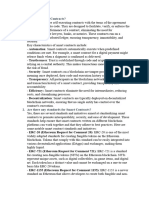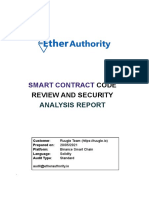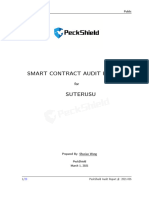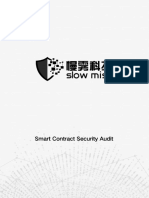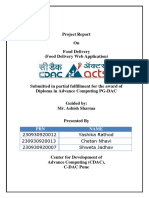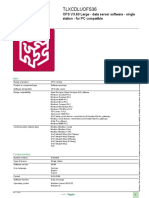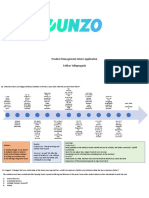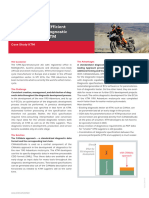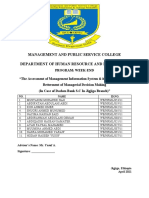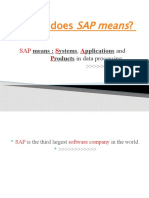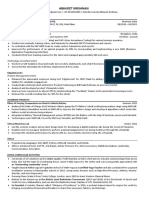0% found this document useful (0 votes)
64 views1 pageBlockchain and Smart Contract Testing Security
The document outlines 25 different types of tests and reviews that should be conducted on smart contracts to identify security vulnerabilities, including code reviews, static and dynamic analysis, formal verification, fuzz testing, and auditing by independent security experts. Conducting thorough security testing is important to ensure smart contracts are resistant to attacks like reentrancy, integer overflows, gas limit failures, race conditions, front-running, time manipulation and more.
Uploaded by
OscarCopyright
© © All Rights Reserved
We take content rights seriously. If you suspect this is your content, claim it here.
Available Formats
Download as PDF, TXT or read online on Scribd
0% found this document useful (0 votes)
64 views1 pageBlockchain and Smart Contract Testing Security
The document outlines 25 different types of tests and reviews that should be conducted on smart contracts to identify security vulnerabilities, including code reviews, static and dynamic analysis, formal verification, fuzz testing, and auditing by independent security experts. Conducting thorough security testing is important to ensure smart contracts are resistant to attacks like reentrancy, integer overflows, gas limit failures, race conditions, front-running, time manipulation and more.
Uploaded by
OscarCopyright
© © All Rights Reserved
We take content rights seriously. If you suspect this is your content, claim it here.
Available Formats
Download as PDF, TXT or read online on Scribd
/ 1











